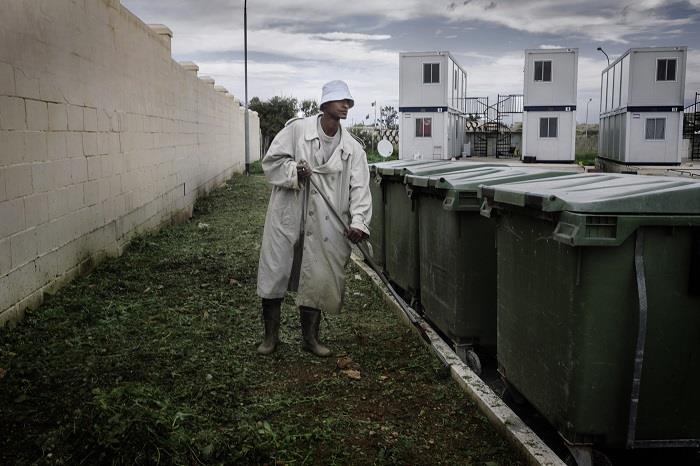A Belgian photojournalist who had the opportunity to visit Malta's detention centres compared the situation in Malta with the way migrants are treated in Belgium and saw how traumatised migrants are in dire need of mental health help.
Melanie Wenger first came to Malta in 2015 with the help of an international NGO. Together with a Belgian journalist, they traced back the voyage undertaken by thousands of migrants, crossing from North Africa, across the Mediterranean, and then across mainland Europe in search of a better life.
Her visit to Malta left her impressed at the way migrants lived in detention and open centres, and when comparing them to other centres such as those in Italy, she saw that in Malta there is a clear problem of overcrowding.
The fact that the Maltese detention centres are in dire need of a more humane touch has been highlighted in various reports following United Nations delegation visits. But one important difference that stands out between how migrants are treated in Malta and in other parts of Europe such as Belgium is access to mental health treatment.
Speaking to The Malta Independent on Sunday, Ms Wenger explained that one of the most positive things she saw during her pan-European project, was how the Belgian authorities provided mental health assistance to the migrants who arrived in their country.

"In Belgium, they have these special centres where they provide mental health and psychological assistance. These centres are less crowded than the generic ones and have no more than 50 people at a time."
She explained that migrants usually have up to three months in such a centre for them to mentally recover.
"From what I observed, the system in Malta is more clinical. Most of the time, when a migrant is struggling with mental health, he is thrown into Mount Carmel Hospital." Ms Wenger said she was not given access to the asylum seekers ward in Mount Carmel, but from what she heard, migrants are simply given medication to be calmed down and no real psychological help is provided.
"The truth is that in Malta, from what I observed, the detention centres look more like a prison," she said while expressing her hope that matters have changed from the last time she was in Malta.
Ms Wegner said that on one particular visit to a detention centre in Belgium, she had met a migrant who had passed through Malta during the perilous voyage. "He had mentioned how he resided at a residence provided by the Richmond Foundation and how this had helped him deal with the trauma he had experienced in a better way."
Following the recent tragic case of a Ghanaian national who committed suicide, the Richmond Foundation has urged more commitment towards the well-being of migrants such that good mental health is promoted and preserved among the various communities present in Malta.
"Many migrants currently living in Malta find themselves in a state of great uncertainty over what is going to happen to them in the coming months. This uncertainty can cause many to experience extreme anxiety as well as a sense of helplessness, as there is nothing they can do to exert control over their current and future situation. A sense of helplessness to change things for oneself, and of hopelessness that things can change in the future, are key predictors of suicidal thoughts and actions," the Foundation said this week.

Statistics show that migrants are around 10 times more likely to experience post-traumatic stress disorder than the general population. They are also more likely to experience certain life stressors before (poverty, persecution), during (physical danger, separation from loved ones) and after the process of leaving their country (detention, uncertainty), all of which can contribute to the development of mental health issues.
The World Health Organisation (WHO) emphasises that post-migration factors can play a large part in whether or not a mental health problem becomes a chronic one. Hence migrants already face a number of challenges which can, and often do, influence their mental health. "Unstable situations can only serve to exacerbate these already existing challenges, thereby increasing the migrants' risk for developing mental health problems which lead to intense suffering and at worst death," it added.
The suicide of Frederick Ofosu, a Ghanaian national who was residing in Malta, caused some uneasiness among the public. Many felt it was a vivid materialisation of the crises and mental health strain migrants go through, even when reaching safe land such as Malta.
His death was, perhaps, coincidental with a recent issue which emerged in the media regarding the Temporary Humanitarian Protection (THPn). However, when reacting, Minister for Home Affairs Carmelo Abela called on the public to base their opinions on facts, not hearsay.
The Minister also mentioned how the man had applied for assisted voluntary return to his home country. However, there were legal issues and pending court cases which could not allow for the man to leave Malta. That is why, the Minister explained, his return process was halted. "The man had a number of pending cases, for some of which he got bail and a fine."